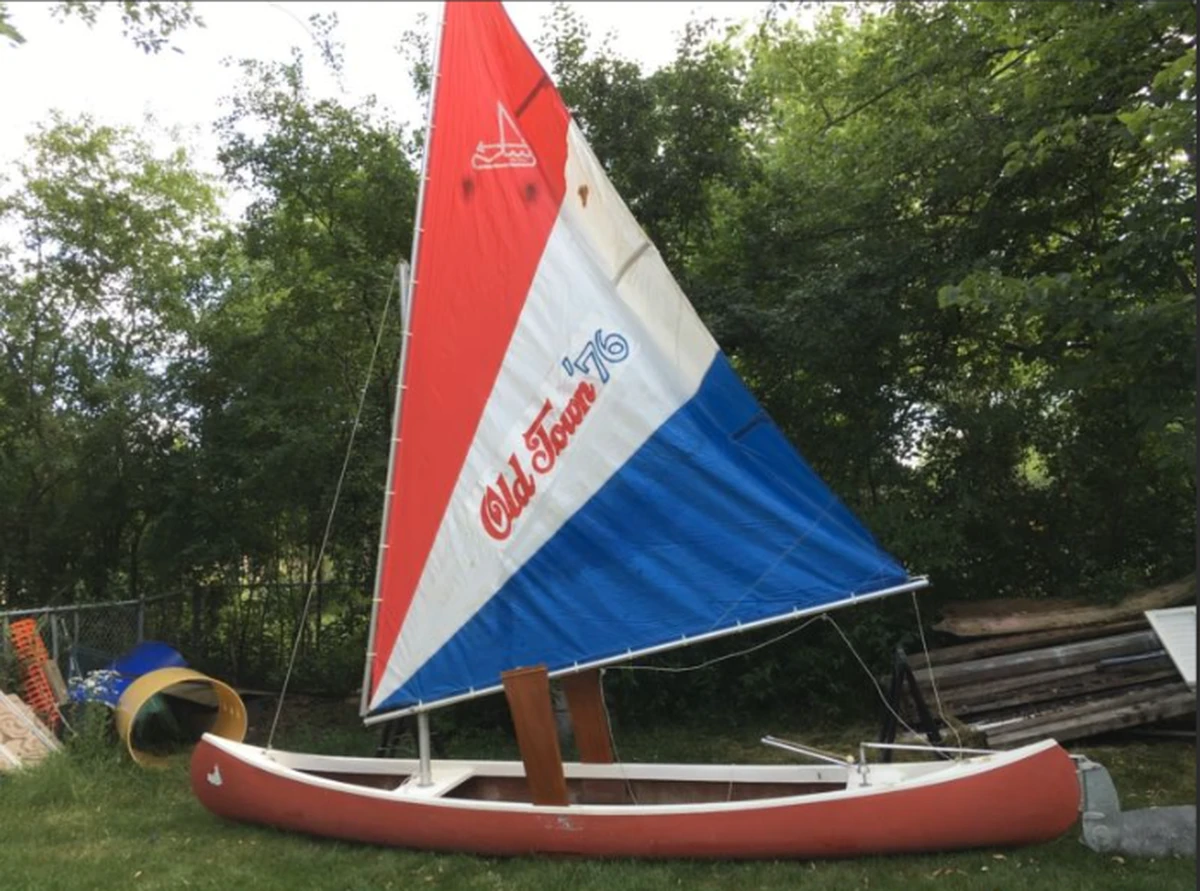
Old Town Wahoo Sailing Canoe
Description
Old Town began offering sailing rigs for their canoes in 1907, with production continuing through 1978. Canoe sailing was popular and has seen a resurgence in recent years due to its unique blend of paddling and sailing capabilities. Typically featured lateen sails, with sizes ranging from 44 to 125 square feet. The standard was a 55-square-foot lateen sail, though a 44-square-foot sail was required for American Canoe Association (ACA) races. Larger sails, like the 75-square-foot Wahoo or 100-square-foot twin lateen setups, were also offered. Masts were typically spruce, 2 inches in diameter at the base, tapering to 1¾ inches at the head, with a square tenon base fitting into a mast step. Spars included booms with brass gooseneck fittings for flexibility. Leeboards are used for lateral resistance to prevent sideslipping, evolving from teardrop shapes (1907) to square (1913) and deeper rectangular designs (1932). Adjustable brackets clamped to gunwales allowed precise positioning. The 18-foot Otca model (e.g., 1941 model with serial number 130365) was a prominent sailing canoe, often equipped with a 55-square-foot lateen sail. These canoes were versatile, designed for both sailing and paddling, and featured high-quality restorations with original or period-correct rigging.
The standard boat dimensions
| i | - |
|---|---|
| j | - |
| p | - |
| e | - |
| p2 | - |
| e2 | - |
| i2 | - |
| j2 | - |
| I | J | P | E | P2 | E2 | I2 | J2 |
|---|---|---|---|---|---|---|---|
| - | - | - | - | - | - | - | - |
Sails
Old Town Wahoo Sailing Canoe - LATEEN
| Luff | 15 ft - (4572 mm) |
|---|---|
| Foot | 10 ft - (3048 mm) |
| Leech | 15 ft - (4572 mm) |
| Tack Ang | * 70.53 ° |
| Area | * 70.71 ft² |
| Edit in Calculator |
Disclaimer. Boats are not all the same -- even when produced in the same factory of the same model. Sailrite does its best to publish accurate dimensions, but we often find it worthwhile to have our customers measure their boats carefully before we produce kits for them. You should take the same precautions, especially when the data is not from Sailrite. The information on this site is not guaranteed to be accurate. Sailrite offers this content as a service to our community, but takes no responsibility for the reliability of the data provided.



